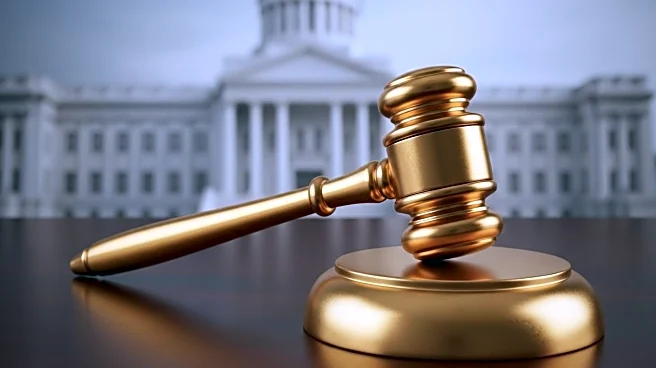What's Happening?
President Trump is pursuing increased control over independent federal agencies, including the Federal Communications Commission (FCC), as part of a broader push to consolidate executive power. This effort is rooted in the unitary executive theory, which posits that the president should have the authority to direct and dismiss agency leaders. The administration's actions have raised concerns about potential impacts on free speech, particularly following FCC Chairman Brendan Carr's comments regarding broadcaster actions against comedian Jimmy Kimmel. The Supreme Court is set to hear a case that could redefine the independence of such agencies, potentially allowing the president to exert more direct influence.
Why It's Important?
The move to increase presidential control over independent agencies could significantly alter the balance of power within the federal government, affecting how regulations are crafted and enforced. This shift could have wide-ranging implications for industries regulated by these agencies, including telecommunications, finance, and media. Critics argue that such changes could undermine the independence necessary for fair and impartial regulation, while supporters claim it would enhance accountability by aligning agency actions with presidential policies.
What's Next?
The Supreme Court's upcoming decision will be pivotal in determining the future structure and independence of federal agencies. If the court sides with the Trump administration, it could lead to a restructuring of agency governance, impacting regulatory processes and oversight. Stakeholders, including industry leaders and civil rights groups, are likely to closely monitor developments and may engage in legal and political advocacy to influence outcomes.










